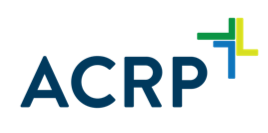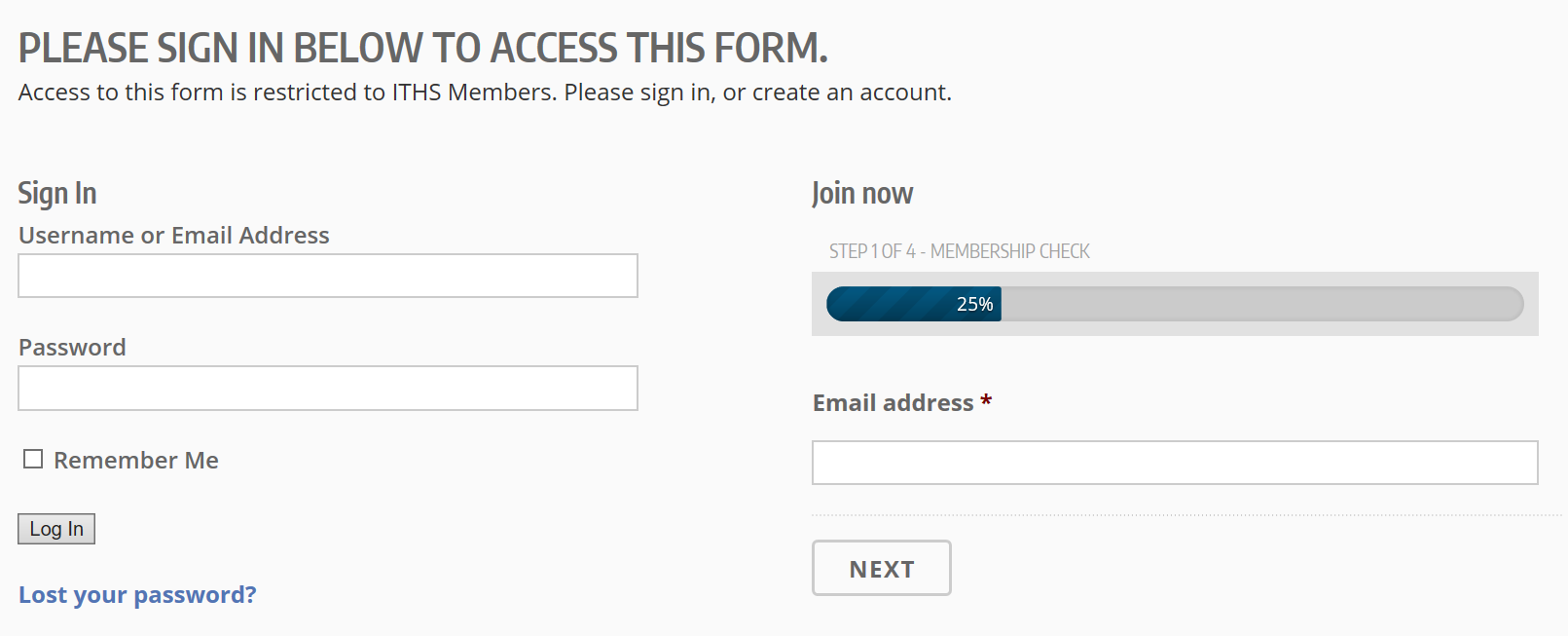Search
No.
This program strongly encourages applications from members of all UW Health Science Schools. This includes the Schools of Pharmacy, Nursing, Public Health and Community Medicine, Social Work, Dentistry, and Medicine. In addition, the program strongly encourages applications from individuals at ITHS partner and collaborating institutions.
COLLABORATIVE CONVERSATIONS:
The purpose of this meeting is to use an Un-Meeting format to enhance focused discussions on topics related to workforce development for clinical research professionals (CRPs) working in academic medical centers (AMCs), especially those that are working on federally-funded clinical research.
Originally planned as a face-to-face half-day event, we are now converting these collaborative conversations into a series of virtual sessions, continuing to use un-meeting principles.
Key Goal
Key Goal
To share perspectives on the challenges and successes in developing the Clinical Research Professional (CRP) workforce within federally-funded institutions, with a focus on developing actionable ways to drive improvement.
(Note, this meeting replaces the April 2020 that was cancelled due to COVID-19).
Objectives
Objectives
Through active collaborative conversations in the “Virtual Un-Meeting”, participants will:
- Summarize the historical evolutions of clinical research professional workforce development and professionalization.
- Learn and apply the “Un-Meeting” process as a method of team science collaboration and communication.
- Contribute to key discussions, solution finding and collaborations for key topics related to clinical research professional workforce development, especially focusing on the academic medical center workforce.
- Impact future initiatives and research by becoming a member of new interactive teams, participating in key meeting outputs or generating local outputs.
The Un-Meeting Concept
The Un-Meeting Concept
The Un-Meeting is different from a traditional passive conference. Rather, this is a highly interactive meeting whereby attendees create and drive the topic discussions surrounding a common theme. This enables attendees to discuss their experiences, identify areas of potential research, innovation, & collaboration. This will cultivate connections across the clinical research professionals and CTSA hubs. It further enhances team science through the collaborative nature of the format.
Each of us knows some [aspects] but not the other. Together we can educate each other and add to what we don’t know.
For additional information on the Un-Meeting process, the Center for Leading Innovation & Collaboration (CLIC) has prepared an Un-Meeting planning guide. The aim of this Un-Meeting will be to enhance clinical research professional workforce development through the creation of sustainable, collaborative relationships and initiatives. Outputs from this Un-Meeting may range from: White Papers, Collaborations, Initiatives, and connections. This video illustrates the Un-Meeting process.
Our Un-Meeting Team
Our Un-Meeting Team
This project has been a collaborative effort of several CTSA hubs, through support by the National Center for Advancing Translational Sciences (NCATS) of the National Institutes of Health (see grant numbers below), including “Un-Meeting” technical assistance from Center for Leading Innovation & Collaboration (CLIC) and meeting support and collaboration from the Association of Clinical Research Professionals (ACRP).
- University of Washington Institute of Translational Health Sciences (ITHS): Arti Shah, Milu Worku, Aric Lane, Pavel Kruchek, Amy Good (PI: Mary L. “Nora” Disis, MD; UL1TR002319)
- University of Florida Clinical and Translational Science Institute (CTSI): Bob Kolb, Holly Morris (PI: Duane Mitchell, MD, PhD, UL1TR001427)
- The Ohio State University Center for Clinical and Translational Science (CCTS): Carolynn Jones, Karen Carter, Penny Jester (PI: Rebecca Jackson, MD, UL1TR002733)
- University of Rochester Clinical & Translational Science Institute (CTSI): Alfred Vitale, Russell Lackey (PIs: Martin Zand, PhD & Nancy Bennett, MD, UL1TR002001)
- Association of Clinical Research Professionals (ACRP): Beth Harper, Jim Kremidas
Dates & Topics
Meetings will be once a month from September 2020 – February 2021. All meetings will take place from 10am to 12pm Pacific (1pm to 3pm Eastern).
16 SEP 20 - Kickoff & Keynote
Kickoff and Keynote
- Arti Shah, Director of Education, ITHS (Welcome)
- Beth Harper, Workforce Innovation Officer, ACRP (Introduction of Dr. Kurilla)
- Mike Kurilla, MD, Director of Innovation, NCATS (Keynote Address)
- Arti Shah, Director of Education, ITHS (Un-Meeting Introduction and Instructions)
- Carolynn T. Jones, DNP, MSPH, RN, FAAN, Co-Director of Workforce Development, The Ohio State University CCTS (Survey Results)
- Aric Lane, ITHS, and Karen Carter, The Ohio State University CCTS (Technology Orientation)
KEYNOTE SPEAKER
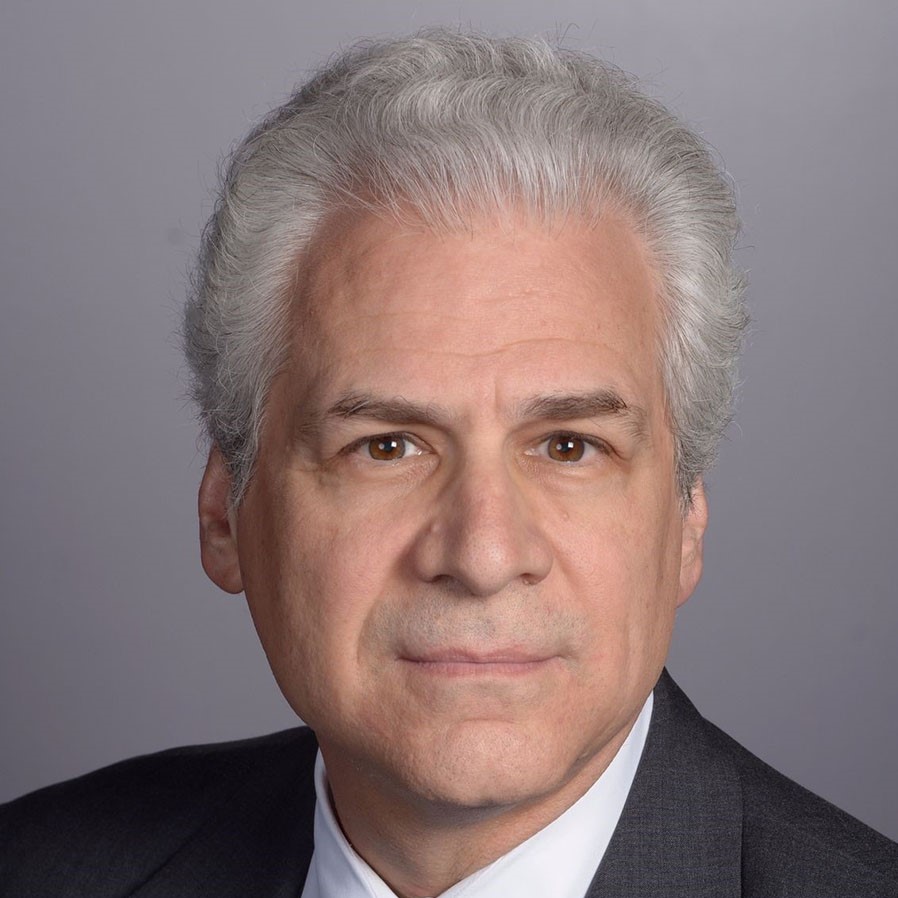 Michael G. Kurilla, MD, PhD
Michael G. Kurilla, MD, PhD
Director
Division of Clinical Innovation
National Center for Advancing Translational Sciences
National Institutes of Health
Michael Kurilla is the director of the Division of Clinical Innovation at NCATS. In this capacity, he oversees the Clinical and Translational Science Awards (CTSA) Program, which supports innovative solutions to advance the efficiency, quality and impact of translational science, with the ultimate goal of getting more treatments to more patients more quickly. Prior to joining NCATS, Kurilla served as the director of the Office of Biodefense Research Resources and Translational Research within the National Institute of Allergy and Infectious Diseases (NIAID), where he focused on translational efforts toward infectious disease product development, including vaccines, therapeutics and diagnostics, with emphasis on biodefense and emerging infectious disease threats. Prior to joining NIAID in 2003, Kurilla was an associate director for infectious diseases at Wyeth. He also worked in antimicrobials at DuPont and on clinical microbiology and molecular pathology at the University of Virginia Health Sciences Center.
Kurilla received his M.D. and his Ph.D. in microbiology and immunology from Duke University. He was a postdoctoral research fellow at Harvard Medical School and completed a residency in pathology at Brigham and Women’s Hospital. He received a B.S. in chemistry from the California Institute of Technology.
28 OCT 20 - Competency-Based, Standardized Job Titles
Competency-Based, Standardized Job Titles
4 x 4 Speaker
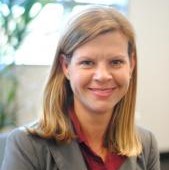 Denise Snyder, MS, RD
Denise Snyder, MS, RD
Associate Dean for Clinical Research
Duke University
Denise Snyder leads the Duke Office of Clinical Research (DOCR) a support office of expertise in coverage analysis, study logistics, data management, regulatory oversight, workforce innovation and guidance for clinical research operations for Duke as a site. Her team has transformed the workforce by developing and implementing competency-based job descriptions and progression pathways for clinical research professionals. Earlier in her career, after spending time in public health and clinical nutrition, Denise started work as a research coordinator and project manager in 2000 for NIH funded trials in oncology.
18 NOV 20 - Issues in Onboarding Training
Issues in Onboarding Training
4 x 4 Speaker
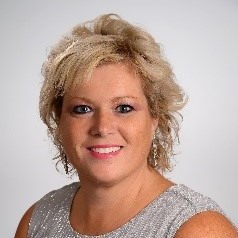 Wendy Lloyd, BA, LPN, CCRP
Wendy Lloyd, BA, LPN, CCRP
Senior Clinical Research Quality Analyst
Vanderbilt University
Wendy received her Bachelor of Arts degree in Management in Human Relations from Trevecca Nazarene University in 2007. She has been a Licensed Practical Nurse since 1985. She has 19 years’ research experience at Vanderbilt. In her role as a Senior Clinical Research Quality Analyst she is developing a competency program, New Employee Orientation as well as coordinates education/training for the Vanderbilt Coordinating Center. She has 13 years’ experience in human subject protection, regulatory affairs and compliance adherence conducting random compliance reviews /directed audits and providing educational session across the Institution. She has also worked as a recruitment specialist on the Recruitment Innovation Center Grant, a research nurse for Pulmonary Hypertension protocols and as research coordinator for multiple sites including cooperative group studies. Wendy serves on numerous Vanderbilt Committees including the Evidence Based Nurse Committee, Editorial Board member for The Empowered Nurses peer reviewed journal and is the Chairperson for the Nurses Week research poster session.
Wendy obtained her Certified Clinical Research Professional (CCRP) certification in 2002, became a Society of Clinical Research Associates (SoCRA) Director, Board Member and eventually President. As president she was awarded the opportunity to speak in Tokyo, Japan providing physicians with information regarding newly implemented ASCO publishing guidelines. Wendy continues her SoCRA involvement as a member of the CCRP Certification Committee and as the Chair for the SoCRA Human Research Protection Program. She not only assists with content and speaker selection for Annual SoCRA Conferences she has been a conference speaker for many years and is a published author. As co-founder and chapter Chairperson for the Middle TN SoCRA chapter Wendy plans monthly meetings at Vanderbilt and coordinates the CCRP exam offered annually in Nashville. The Greater Nashville Area Chapter received the recognition award for offering the most continuing education for clinical research professionals for the past two consecutive years, 2019 and 2020. Wendy is passionate about educating others about research, her most recent project is establishing a SoCRA chapter and presenting a Good Clinical Practice course for Vanderbilt Global Health and research personnel in Abuja, Nigeria.
09 DEC 20 - Issues in Competency-Based CRP Continuing Education
Issues in Competency-Based CRP Continuing Education
4 x 4 Speaker
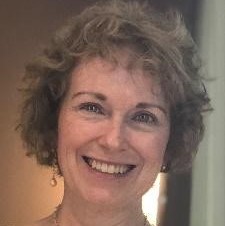 Mary-Tara Roth, RN, MSN, MPH
Mary-Tara Roth, RN, MSN, MPH
Director, Clinical Research Resources Office
Assistant Director, Human Research Protection Program
Boston University Medical Campus/Boston Medical Center
As Director of the Clinical Research Resources Office, Mary-Tara is responsible for defining the office’s services and overseeing the implementation of those services to support clinical researchers at BMC/BU Medical Campus. In addition, she works at providing services to investigators and study teams, especially in the areas of regulatory consultation and training for all levels of the research team. Mary-Tara also oversees the Quality Assurance program within the Human Research Protection Program.
Mary-Tara has been involved in clinical research for more than 20 years. She has a BS in Psychology from Tufts, a BS in Nursing from Johns Hopkins, and a Master’s in Nursing and a Master’s in Public Health from Johns Hopkins.
27 JAN 21 - Issues in Attrition, Retention, and Progression
Issues in Attrition, Retention, and Progression
4 x 4 Speaker
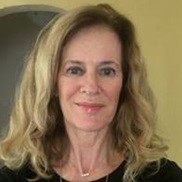 Gerri O’Riordan, RN, BSN, CNS, CCRN
Gerri O’Riordan, RN, BSN, CNS, CCRN
Director of Clinical Research for Cardiovascular Medicine Division
Director of Stanford Clinical Research Preceptor Program
Stanford University
Gerri O’Riordan is Director of Clinical Research for the Cardiovascular medicine Division at Stanford University. She also is Director of the Stanford Clinical Research Preceptor program. During her 25 plus year at Stanford, Gerri has worked as clinical research coordinator in anesthesia, study facilitator at Spectrum Child Health, Chief operating officer and senior director of regulatory compliance at the Sean N. Parker Allergy Center.
17 FEB 21 - Enhancing the CRP Pipeline
Enhancing the CRP Pipeline
4 x 4 Speaker
Clare Tyson, MA, CCRA
Research Coordination and Management Program Manager
Medical University of South Carolina
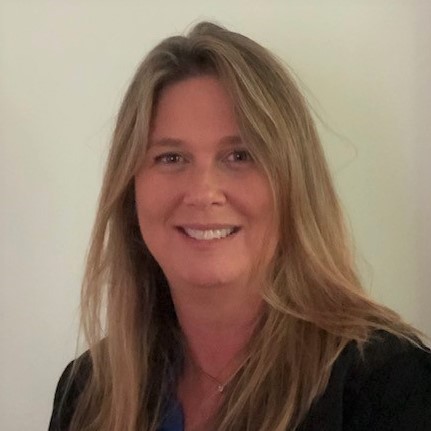 Clare Tyson, MA, CCRA is the Research Coordination and Management (RCM) Program Manager for the South Carolina Clinical & Translational Research (SCTR) Institute at MUSC, the academic home of the National Institutes of Health (NIH) Clinical and Translational Science Award (CTSA) grant. In this role she works with investigators and departments to identify research support needs and provides fee-based nurse and research coordination services within at MUSC. Through RCM she has developed a research coordinator and nurse coordinator mentorship and career development program that offers internal and external training opportunities to student interns and entry-level employees interested in research in the academic setting.
Clare Tyson, MA, CCRA is the Research Coordination and Management (RCM) Program Manager for the South Carolina Clinical & Translational Research (SCTR) Institute at MUSC, the academic home of the National Institutes of Health (NIH) Clinical and Translational Science Award (CTSA) grant. In this role she works with investigators and departments to identify research support needs and provides fee-based nurse and research coordination services within at MUSC. Through RCM she has developed a research coordinator and nurse coordinator mentorship and career development program that offers internal and external training opportunities to student interns and entry-level employees interested in research in the academic setting.
She currently serves as a co-lead of MUSC’s Clinical Research Job Classification initiative. This initiative has evolved through a collaboration between MUSC’s central Human Resources (HR) office and the MUSC research community and is focused on establishing a job classification track that enhances career and professional development opportunities for the clinical research workforce.
Clare has over 20 years of research experience and is a Certified Clinical Research Associate (CCRA) through the Association of Clinical Research Professionals (ACRP). Previously she served as the Project Manager of the South Carolina Node of the National Institutes on Drug Abuse (NIDA) Clinical Trials Network (CTN). She was responsible for implementing protocols in research-naïve community sites, providing quality assurance monitoring, regulatory support, training, and study management.
Registration Timeline
- August 24-August 30: Priority Registration for Clinical Research Professionals Taskforce
- August 31: General Registration begins
- Please note: you must join ITHS (it’s quick and free) before you can register for the series.
- September 16: First Un-Meeting session
Registration Instructions
- Click the “Register for the Series” button to get to the registration page.
- You’ll now be on a screen asking you to sign into the website (left) or to join ITHS (right).
- If you’re already an ITHS member you can just sign in, otherwise you’ll have to join. (If you are not sure if you’re a member yet, enter your email into the Join ITHS form on the right.)
- Once you’ve signed in or joined, you’ll be able to fill out the registration form.
- When you have filled out the registration form, you will see a confirmation screen, thanking you for registering. You will also receive an email including you confirmation and the meeting Zoom links. If you don’t see the screen or get the email, please let us know.
- If you’re still having trouble, please feel free to email us!
Description
The Specific Aims page is a concise master plan for your research grant, and is one of the most important components of a grant proposal. In this session, participants will learn how to write each of the four critical sections of a Specific Aims page.
Pre-Work:
Attendees are encouraged to bring their own Specific Aims page from a grant proposal they have written, if available. If not, sample Specific Aims pages will be provided. There will be an opportunity to assess these Specific Aims pages for the critical components, and identify areas for improvement.
Schedule of activities
- 1:00-1:15pm – Registration and Lunch
- 1:15-1:20pm – Welcome/Introduction
- 1:20-2:20pm – Presentation and Q&A
- 2:20-2:30pm – Thank You and Feedback Survey
Learning objectives
At the end of the session, participants will
- Identify the critical sections of a specific aims page
- Write the important components of each specific aims section
- Plan a timeline for specific aims development
Parking Options Closest to the Center
- Metered street parking on Aloha Street, Minor Avenue, Roy Street, and Valley Street ($2.00 hour/10 hour limit, 8AM-6PM)
- 1200-1286 Aloha Street Public Parking lot off of Aloha Street
- HC Henry Pier lot – 809 Fairview PL N Seattle, WA 98109
- Chandler’s Cove lot – 901 Fairview Ave N Seattle, WA 98109
Shuttles from UW Campus and UW SLU
https://facilities.uw.edu/catalog/slu
About the Speaker
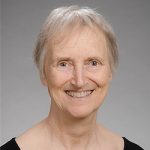 Laura-Mae Baldwin, MD, MPH is a Professor of Family Medicine at the University of Washington (UW) and a seasoned researcher with a focus on implementation of evidence-based interventions into diverse primary care clinical settings. As either Principal Investigator or Co-Investigator on grants funded by federal agencies, foundations, and non-profit organizations, she has developed and applied her quantitative and qualitative research skills in diverse projects involving partnerships with community-based clinicians and clinical organizations. She currently serves as Senior Advisor for the Community Engagement Program within the Institute of Translational Health Sciences (ITHS), and is currently co-leading the development of the Implementation Laboratory for the Optimizing Implementation in Cancer Control (OPTICC) Center at the University of Washington.
Laura-Mae Baldwin, MD, MPH is a Professor of Family Medicine at the University of Washington (UW) and a seasoned researcher with a focus on implementation of evidence-based interventions into diverse primary care clinical settings. As either Principal Investigator or Co-Investigator on grants funded by federal agencies, foundations, and non-profit organizations, she has developed and applied her quantitative and qualitative research skills in diverse projects involving partnerships with community-based clinicians and clinical organizations. She currently serves as Senior Advisor for the Community Engagement Program within the Institute of Translational Health Sciences (ITHS), and is currently co-leading the development of the Implementation Laboratory for the Optimizing Implementation in Cancer Control (OPTICC) Center at the University of Washington.
Event Materials
Event Video
Event Video
For those who are viewing the recording, but did not attend the live event, please contact Brenda Zierler (brendaz@uw.edu) to receive and complete the evaluation survey. The evaluation survey is required in order to receive the Team Science Seminar Series certificate of completion.
Description
In this 3rd session of the Team Science Seminar Series, we will help you determine if a meeting is the best use of your team’s time and give you easy-to-apply tools and techniques to set your meetings up for success. We will also share a quick easy-to-use evaluation method to continually improve the value of your meeting.
Event Materials
2 MBSLIDE PRESENTATION: Successful Meeting Management54 KBHANDOUT: Agenda General Template79 KBHANDOUT: Agenda Template Explained
Learning Objectives
At the end of this session, attendees will be able to:
- Identify when to have a meeting
- Create meeting agreements
- Apply meeting roles and agendas
- Use 3 methods of meeting evaluation
About the Speaker
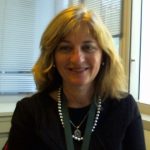 Jennifer Sprecher is Director of Strategy Development and Deployment with the School of Nursing. Ms. Sprecher works with organizations to achieve excellence through Strategy development, Lean Project Management*, balanced scorecards, change management, benchmarking, team problem solving, team and leadership coaching and facilitation.
Jennifer Sprecher is Director of Strategy Development and Deployment with the School of Nursing. Ms. Sprecher works with organizations to achieve excellence through Strategy development, Lean Project Management*, balanced scorecards, change management, benchmarking, team problem solving, team and leadership coaching and facilitation.
Ms. Sprecher is a strong team facilitator, called upon to facilitate high-level teams where interaction to reach objectives is critical. Her facilitation ranges from groups of 6-200+ individuals working in person and virtually, from central to internationally diverse team locations. She has worked extensively in the team science arena providing both research, workshop development and delivery, and facilitation to health science research teams.
Ms. Sprecher has a bachelor’s degree in Industrial Engineering, a Master’s of Science in Management Systems, is a certified Lean Six Sigma Black Belt and an International Coaching Federation ACC certified Leadership Coach.
Before the UW School of Nursing, Ms. Sprecher focused exclusively on health research in the Institute of Translational Health Sciences, also within the University of Washington. Prior to the UW, Ms. Sprecher spent 7 years as Executive Director of the Washington State Quality Award (WSQA), a Baldrige-based non-profit organization. With a background in Industrial Engineering, Ms. Sprecher has been working with process improvement for over 25 years using continuous process improvement methods including Lean, Lean-Sigma, Plan Do Check Act and 6S (5S workplace organization combined with Safety) and Total Quality Management. Her coaching is focused on working with leaders and up and coming leaders within the technical and scientific community.
*Lean Project Management is a methodology developed by UW-based divisions of: ITHS, Organizational Excellence, Facilities and Finance and UWIT that combines project management, agile and Lean to gain project success in terms of on scope, on budget and timely project completion. This methodology is built on principles of teamwork, customer engagement, continuous improvement and data driven decisions.
Northwest Participant and Clinical Interactions Network
Annual Meeting 2023
Research as a Driver of Evidence-Based Practice
EVENT DETAILS
Evening Social:
Thursday, April 13, 5:00–7:00pm (Pacific)
University of Washington/Gonzaga University Health Partnership Building
840 E. Spokane Falls Blvd, Spokane, WA 99202
Conference:
Friday, April 14, 9:00am–2:15pm (Pacific)
Providence Northwest Auditorium
20 W 9th Ave, Spokane, WA 99202
Cost: Free
Event Description
Research is a driver of evidence-based practice across the region and at each of our institutions. Individual research studies can impact the treatment of disease and patient outcomes. Research centers, like members of the NW PCI Network, can impact how research is conducted collectively across all studies that pass through our doors. Our 10th NW PCI Network Annual Meeting will focus on how we, as a network, can expand engagement of our patients and research volunteers and strengthen the scientific rigor and generalizability of our best practices. Come prepared to be both a learner and a teacher as we continue our journey into the next decade!
Invite Research Participants
We all know the perspectives of patients and research participants are critical to ensure the quality of research at our institutions. We want to hear their voices, too!
Travel to Spokane
ITHS will support travel and one night of lodging (unless travel requires two nights) for one site champion and up to two research participants from each NW PCI member site. ITHS will cover your airfare and lodging, as well as related travel expenses (i.e., ground transportation, per diem and airport parking). Additional representatives from your organization are welcome to attend at their own expense.
Presentation Slides
Click to download.
Agenda
NW PCI Annual Meeting 2023 Agenda
Click to download the complete agenda.
172 KBNW PCI Annual Meeting Agenda finalAll times Pacific
| Thursday, April 13 (Evening Social) | |
| 5:00pm | Networking and Light Refreshments |
| 5:30pm | Welcome |
| 5:40pm | University of Washington/Gonzaga University Health Sciences and Innovation |
| 5:55pm | Annual Meeting Goals |
| 6:10pm | Introducing the Bonnie Ramsey Northwest Participant & Clinical Interactions Network Keynote Lectureship |
| 6:30pm | Networking and Light Refreshments |
| 7:00pm | End of Day One |
| Friday, April 14 (Conference) | |
| 9:00am | Check-In and Breakfast |
| 9:20am | Welcome and Updates |
| 9:45am | Regional Research Highlight: Opportunities and Barriers Towards Genetic Testing in Rural and Urban Primary Care Clinics |
| 10:00am | Trial Innovation Network: Resources for NW PCI Network Members |
| 10:15am | Keynote Lecture: Research as a Driver of Evidence-Based Practice |
| 11:15am | Break |
| 11:30am | Panel: Models of Patient Partnerships in Research |
| 12:15pm | Lunch |
| 1:00pm | Learning Laboratories |
| 2:00pm | Closing: Next Steps, Evaluation and Acknowledgements |
| 2:15pm | Adjourn |
Speakers and Panelists
Honoree: Bonnie Ramsey, MD
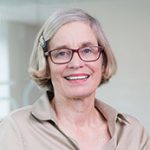 Dr. Bonnie Ramsey is an Endowed Professor and Vice Chair for Research in the Department of Pediatrics at the University of Washington School of Medicine in Seattle, Washington. She is a pediatric pulmonologist and clinical scientist with over 30 years of experience in translational research and therapeutic development in the field of cystic fibrosis (CF). She was a lead investigator for development of key therapies in CF including inhaled tobramycin, dornase alpha, and ivacaftor. She has been acknowledged for her contributions to CF including the Paul D’Sant Agnese Award (1998) and the Lifetime Achievement Award (2013) from the Cystic Fibrosis Foundation, the Lifetime Achievement Award from the American Thoracic Society (2014), elected to the National Academy of Medicine in 2015, and received the Warren Alpert Foundation Prize (2018). As the Vice Chair for Research, Dr Ramsey plays a key role in faculty mentorship programs.
Dr. Bonnie Ramsey is an Endowed Professor and Vice Chair for Research in the Department of Pediatrics at the University of Washington School of Medicine in Seattle, Washington. She is a pediatric pulmonologist and clinical scientist with over 30 years of experience in translational research and therapeutic development in the field of cystic fibrosis (CF). She was a lead investigator for development of key therapies in CF including inhaled tobramycin, dornase alpha, and ivacaftor. She has been acknowledged for her contributions to CF including the Paul D’Sant Agnese Award (1998) and the Lifetime Achievement Award (2013) from the Cystic Fibrosis Foundation, the Lifetime Achievement Award from the American Thoracic Society (2014), elected to the National Academy of Medicine in 2015, and received the Warren Alpert Foundation Prize (2018). As the Vice Chair for Research, Dr Ramsey plays a key role in faculty mentorship programs.
Keynote Speaker: Margaret Rosenfeld, MD, MPH
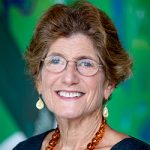 Margaret Rosenfeld is a pediatric pulmonologist, Professor and Associate Vice Chair for Clinical Research, Department of Pediatrics, University of Washington School of Medicine and co-Director of the Center for Clinical and Translational Research at the Seattle Children’s Research Institute. Her research program focuses on multicenter clinical trials and observational studies in children with cystic fibrosis and other chronic lung diseases of childhood, with an emphasis on early intervention strategies. She is the physician liaison to the Department of Health for CF newborn screening. She also researches mobile health tools as endpoints for remote clinical trials that could increase access to trials and decrease the burden of participation.
Margaret Rosenfeld is a pediatric pulmonologist, Professor and Associate Vice Chair for Clinical Research, Department of Pediatrics, University of Washington School of Medicine and co-Director of the Center for Clinical and Translational Research at the Seattle Children’s Research Institute. Her research program focuses on multicenter clinical trials and observational studies in children with cystic fibrosis and other chronic lung diseases of childhood, with an emphasis on early intervention strategies. She is the physician liaison to the Department of Health for CF newborn screening. She also researches mobile health tools as endpoints for remote clinical trials that could increase access to trials and decrease the burden of participation.
Research Participant Speakers
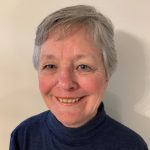
Marilyn Hanley
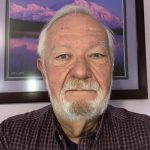
Robert Zador
Speakers, Panelists and Moderators

Cherese Pullum, MS, RN, CCRC
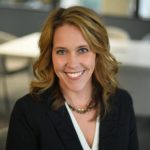
Annie Reedy, CRA, MBA
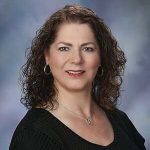
Laurie Riemann, RN, BSN
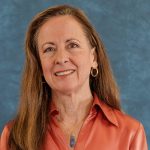
Katherine R. Tuttle, MD, FASN, FACP, FNKF
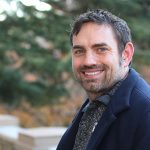
Charlie Gregor, MPH
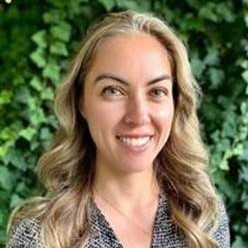
Allison Lambert, MD, MHS
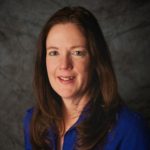
Joan Milton, MS, RDN, CRCC
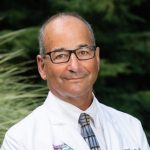
Darryl Potyk, MD, FACP
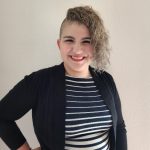
Jennifer Acosta
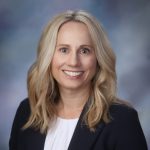
Jamie M. Besel, PhD, MN, RN
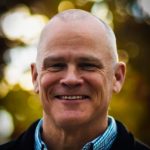
Robert H. Coker, PhD, FACSM, FTOS
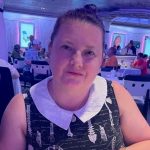
Kara Cooper, CCRC
NW PCI Project Updates & Manuscripts
Click to download the documents.
472 KBIncreasing opportunities for patients to participate in research across the Northwestern United States306 KBNW PCI Network Project Updates553 KBNW PCI Executive Summary
The Optimizing Implementation in Cancer Control Center (OPTICC) Center is conducting a brief survey to understand the cancer control priorities among our partners. The information gathered from this survey will help inform OPTICC Center activities and research pilot projects topic areas. Please find a link to the survey here: https://redcap.iths.org/surveys/?s=P3P87FTHAFC7JN83. One survey per organization would be great, though many can collaborate on the answers.
If you have any questions or concerns, please contact the OPTICC I-Lab project manager, Ashley Johnson (ashleyj5@uw.edu).
Manuscripts
455 KBFeasibility of connecting regional research programs to national multisite trials emanating from the CTSA Trial Innovation Network333 KBClinician engagement in research as a path toward the learning health system: A regional survey across the northwestern United States
Location Information
EVENING RECEPTION LOCATION
UW School of Medicine/Gonzaga University Health Sciences and Innovation Building
840 E. Spokane Falls Blvd, Spokane, on the southwest corner of Hamilton & Spokane Falls Blvd, adjacent to McKinstry’s Spokane Inland Empire Railroad (SIERR) historic building.
Parking: Parking spaces available at the venue, no passes required.
More building info: https://www.gonzaga.edu/academics/health-partnership/about/health-sciences-and-innovation-building-fact-sheet
MAIN CONFERENCE LOCATION
Providence Auditorium
20 W 9th Ave, Spokane, WA, on the campus of Providence Sacred Heart Medical Center & Children’s Hospital.
Parking: Please use the parking structure at 13 E Rockwood Blvd, Spokane, WA 99202. No passes required.
Campus and parking map: https://www.providence.org/locations/wa/sacred-heart-childrens-hospital/patients-and-visitors/maps
About the NW PCI Network
The Northwest Participant and Clinical Interactions (NW PCI) Network is a collaboration of regional translational research hubs located across the five-state WWAMI (Washington, Wyoming, Alaska, Montana, Idaho) region. This Network connects diverse populations to local, high-quality clinical research by building research partnerships between investigators, clinicians and clinical organizations. Through these partnerships, patients can participate in and benefit from research studies near their homes, and clinicians and health care administrators can collaborate on research studies with minimal interruptions to clinical operations and facilitate research conducted in real-world health care settings.
Contact Us
Contact us if you have any questions about this event.
Description
Many people know that an elevator pitch is important but may not know how to create one or the myriad of situations in which one can be used. Also, the delivery of the pitch is just as important as the content (sometimes even more so)!
In this session participants will learn why they should have an elevator pitch and how to tailor it to various situations and goals. The workshop will be interactive so individuals can identify their strengths and challenges and learn from each other, and practice delivering their pitch and receive feedback.
Pre-Work
- Participants may read this article before coming but it is not required: https://www.glassdoor.com/blog/guide/elevator-pitch/
- Participants should complete this Elevator Pitch worksheet:
66 KBPRE-WORK: Elevator Pitch Worksheet - Participants should have paper/pen or computer as presenter will give attendees a few minutes to start drafting their elevator pitch during the session.
Learning Objectives
At the end of the session, participants will be able to:
- List preparation techniques in crafting an elevator speech.
- Describe approaches to tailor an approach for different audiences.
- Identify challenges in communicating an elevator speech.
Schedule of Activities
- 12:00pm-12:10pm – Welcome, Overview, Introductions
- 12:10pm-1:25pm – Presentation and Q&A
- 1:25pm-1:30pm – Thank You and Feedback Survey
About the Speaker
Educator, scholar, actor, and public speaking consultant Dr. Monica Cortés Viharo holds a PhD from the University of Washington (UW) School of Drama and a Certificate in Public Scholarship from the UW Simpson Center for the Humanities. As a member of the Humanities Washington Speaker Bureau and the performance coach for TEDx Youth, Seattle, she teaches performance and communication skills to speakers of all ages. Her work has been published in Theatre Topics, the New England Theatre Journal, and the Journal of Dramatic Theory and Criticism. With over 20 years of experience, she has taught at the University of Washington, the University of Puget Sound, and Cascadia College. She is currently a lecturer at the School of the Art Institute of Chicago and a company member of eSe Teatro, Seattle’s only all-Latina theatre company.
Event Materials
12 MBPRESENTATION: Crafting and Delivering Your Elevator PitchEvent Video
Event Video
For those who are viewing the recording, but did not attend the live event, please contact Brenda Zierler (brendaz@uw.edu) to receive and complete the evaluation survey. The evaluation survey is required in order to receive the Team Science Seminar Series certificate of completion.
Description
During our second (out of 10) Team Science Seminar Series, we will focus on self-awareness – the ability to see our own values, aspirations, reactions (including thoughts, behaviors, feelings, strengths and weaknesses), and understand how other people view us in terms of those factors. Leaders should actively work on both seeing themselves clearly and getting feedback to understand how others see them. Although most people believe they are self-aware, research shows that only 10 to 15% of people actually fit the criteria of being self-aware.
Event Materials
3 MBSLIDE PRESENTATION – Building Self-Awareness and Leadership Traits for Team Effectiveness
Learning Objectives
- Define the personal qualities of self-awareness.
- Explain why leaders need self-awareness to be effective.
- Describe the difference between internal and external self-awareness.
- Identify strategies to increase internal and external self-awareness.
Pre-Work
Attendees should read the article and watch the video below.
517 KBPRE-READ: How to Move from Self-Awareness to Self-Improvement
About the Speaker
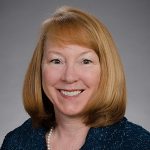 Brenda K. Zierler, PhD, RN, FAAN, is a professor in the UW School of Nursing and adjunct professor in the Department of Surgery (Vascular Division) and Department of Biomedical Informatics and Medical Education in the UW School of Public Health and in the Department of Health Systems and Population Health in the UW School of Public Health. Dr. Zierler is Co-Lead of ITHS’ Team Science Core. Dr. Zierler co-developed and taught the Team Science and Leadership graduate course with Nicole Summerside, MHA for three years.
Brenda K. Zierler, PhD, RN, FAAN, is a professor in the UW School of Nursing and adjunct professor in the Department of Surgery (Vascular Division) and Department of Biomedical Informatics and Medical Education in the UW School of Public Health and in the Department of Health Systems and Population Health in the UW School of Public Health. Dr. Zierler is Co-Lead of ITHS’ Team Science Core. Dr. Zierler co-developed and taught the Team Science and Leadership graduate course with Nicole Summerside, MHA for three years.
Description
Many people know that an elevator pitch is important but may not know how to create one or the myriad of situations in which one can be used. Also, the delivery of the pitch is just as important as the content (sometimes even more so)! In this session participants will learn why they should have an elevator pitch and how to tailor it to various situations and goals. The workshop will be interactive so individuals can identify their strengths and challenges and learn from each other, and practice delivering their pitch and receive feedback.
Pre-Work
- Participants should read this article before coming but it is not required. https://www.glassdoor.com/blog/guide/elevator-pitch/
- Participants should have paper/pen or computer as presenter will give attendees a few minutes to start drafting their elevator pitch during the session.
Learning Objectives
At the end of the session, participants will:
- Be able to list preparation techniques in crafting and elevator speech.
- Be able to describe approaches to tailor an approach for different audiences.
- Be able to identify challenges in communicating an elevator speech.
Schedule of Activities
- 11:00am-11:10am – Welcome, Overview, Introductions
- 11:10am-12:25pm – Presentation and Q&A
- 12:25pm-12:30pm – Thank You and Feedback Survey
About the Speaker
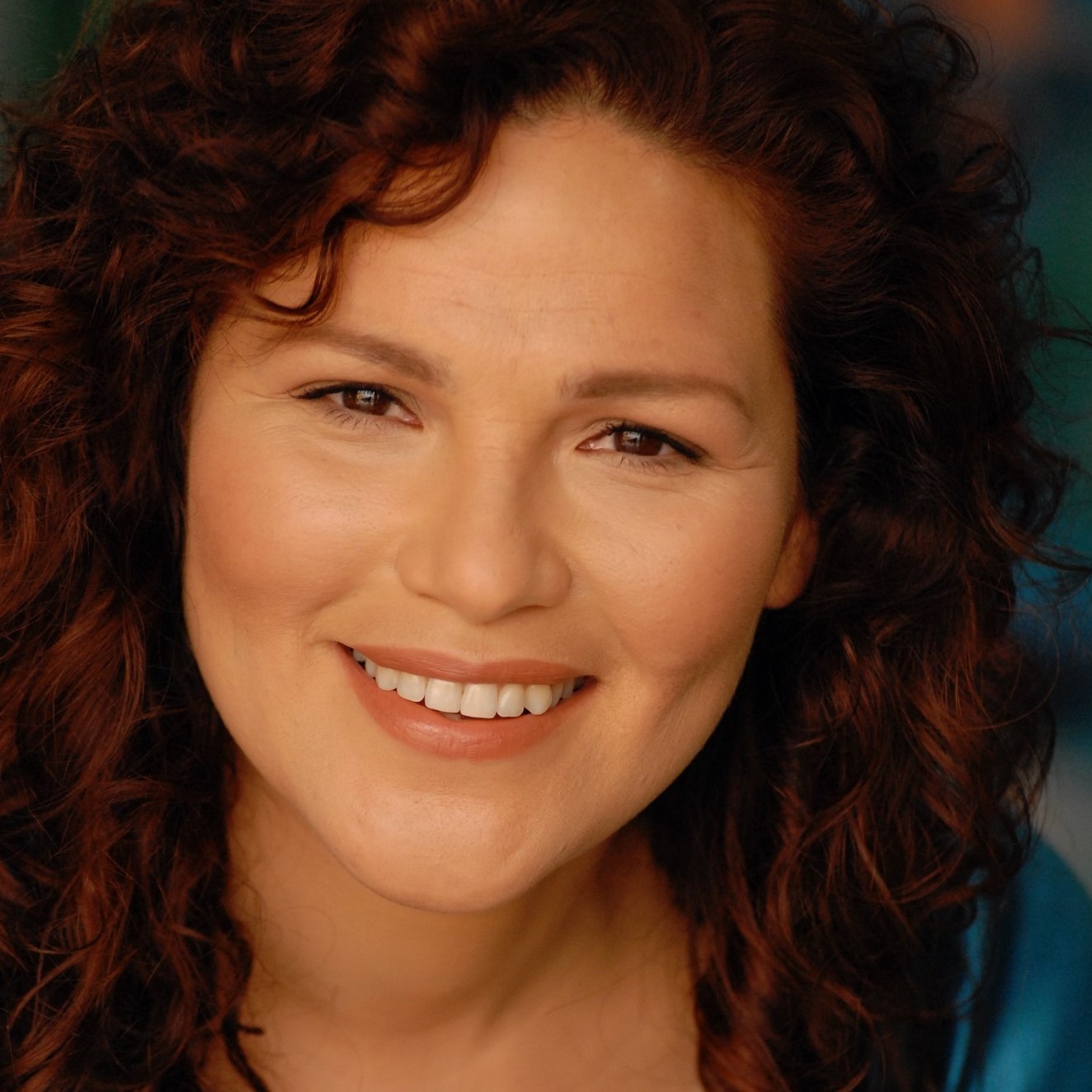 Monica Cortés Viharo is a PhD student at the University of Washington’s School of Drama and has earned a certificate in Public Scholarship from the Simpson Center for the Humanities. Currently, she is a member of the Humanities Washington Speaker Bureau and travels the state delivering her workshop Always On: Turning Up the Volume on Everyday Communication. She is also an Adjunct Professor at the University of Puget Sound and recently served as the performance coach for TEDxYouth@Settle. Her work has been published in Theatre Topics, The New England Journal of Theatre, and The Journal of Dramatic Theory and Criticism. Monica earned her Bachelor’s degree in Theater and Political Science at the University of California, Berkeley and has over 20 years of experience as a professional actor, teacher, and public speaking consultant.
Monica Cortés Viharo is a PhD student at the University of Washington’s School of Drama and has earned a certificate in Public Scholarship from the Simpson Center for the Humanities. Currently, she is a member of the Humanities Washington Speaker Bureau and travels the state delivering her workshop Always On: Turning Up the Volume on Everyday Communication. She is also an Adjunct Professor at the University of Puget Sound and recently served as the performance coach for TEDxYouth@Settle. Her work has been published in Theatre Topics, The New England Journal of Theatre, and The Journal of Dramatic Theory and Criticism. Monica earned her Bachelor’s degree in Theater and Political Science at the University of California, Berkeley and has over 20 years of experience as a professional actor, teacher, and public speaking consultant.
Virtual Poster Session
WPRN Annual Conference 2023
The Impact of the COVID-19 Pandemic on Opioid Prescribing in Primary Care
Authors: Lili Szabo, Sebastian Tong, MD, MPH, Kris Ma, PhD, Zihan Zheng, MS, Joseph LeMaster, MD, MPH, Kari Stephens, PhD
Click to view the poster.
558 KBThe Impact of the COVID-19 Pandemic on Opioid Prescribing in Primary CareRural-Urban Differences in Access to Medication Treatment for Opioid Use Disorder Across the U.S.
Authors: Darcie Caldwell; C. Holly A. Andrilla, MS; Sara Jackson, MD, MPH; Laura-Mae Baldwin, MD, MPH
Ambulatory antibiotic prescribing for children in a practice research network
Authors: Lauren Mitchell; Matthew Kronman, MD, MSCE; Allison Cole, MD, MPH; Nicole M. Poole, MD, MPH
The Benefits of Flexibility in Designing the Colonoscopy Outreach for Rural Communities (CORC) Study Protocol
Authors: Gina Keppel, MPH, Brooke Ike, MPH, Allison Cole, MD, MS
Click below to view the poster.
249 KBThe Benefits of Flexibility in Designing the Colonoscopy Outreach for Rural Communities (CORC) Study ProtocolPost-COVID Pain: Exploratory Analysis of Patient-Reported Outcomes and Laboratory Data
Authors: Nikki Gentile, MD, PHD; Rachel Geyer, MPH; Jing Zhang, MS; Patrick Mathias, MD, PhD; Janna Friedly, MD, MPH
Click below to view the poster.
374 KBPost-COVID Pain: Exploratory Analysis of Patient-Reported Outcomes and Laboratory DataTREE Hosting Services
TREE (Translational Research Education Engine) is built on the well-established platform, Moodle™ LMS, which provides easy-to-use authoring tools and is highly customizable to your needs. TREE supports multimedia content, interactive assessment, and communication tools to enhance learning. TREE allows content administrators the ability to upload and manage their own content, track learner performance, and much more. Explore features and functionality below.
Whether you are starting from scratch or have existing material, instructional design services are also available to help enhance the delivery of your education and training content.
FEATURES & FUNCTIONALITY HIGHLIGHTS
- No UW AMC Account required for use
- Single Sign on
- Self-enrollment or invitation only enrollment capabilities
- Batch enrollment
- Course prerequisites
- Supports creation and generation of completion certificates
- Supported by common browsers
- Chrome
- Firefox
- Supports webinars/videoconferencing
- Offers learning paths (Train tracks)
- Automated enrollment
- System permissions per role
- Updates to LMS released twice a year
- SCORM compliant training modules
- Ability to host webinars
- Video uploads into modules
- Ability to auto-assign training based on user identifiable metrics
- Individual user and module reporting
- PowerPoint deck, PDF, and other document type files uploaded directly to modules
- Automatic course releases
- Content restriction based on user group or release date or both
- Ability to create and maintain a content library
- All standard assessment types (multiple choice, fill in the blank, essay, etc.)
- Learner file uploads to trainer
- Ability to proctor assessments
- Discussion forums
- Creation or access to Wiki pages
- Content administrators can upload and manage their own content
USER GROUPS & COSTS
User Groups
- Internal to ITHS Cores (ITHS)
- CTSA grant covers the costs associated with hosting in the LMS
- Content Providers with a UW Budget Number (UW)
- Administration set-up fee
- Monthly hosting charge
- 12-month minimum commitment
- Content Providers within Partner Institutions & WWAMI region organizations which are not a part of an ITHS core (WWAMI)
- Administration set-up fee
- Monthly hosting charge
- 12-month minimum commitment
- Content Providers external to the WWAMI region (External)
- Administration set-up fee
- Monthly hosting charge
- 12-month minimum commitment
Administration Set-Up Fee
Administration Set-Up Fee
- One-time fee
- Fee to cover the cost of the administrative and technical work to set up a user group for the requesting content providers, to enable them to upload and manage their own trainings
- Management time will be required to draft, communicate and facilitate the approval and signing of the Service Line Agreements (SLA)
- LMS Staff time to set up and can include up to 5 content administrators
| LMS Effort Based on hours | ITHS | UW | WWAMI | External | |
|---|---|---|---|---|---|
| Management | (SLA & Oversight) | $0.00 | $261.00 | $326.25 | $391.50 |
| LMS Support | (group/user set up) | $0.00 | $115.00 | $143.75 | $172.50 |
| Finance & Communications | (billing & processing, communications) | $0.00 | $124.00 | $155.00 | $186.00 |
| Total | $0.00 | $500.00 | $625.00 | $750.00 | |
| ▲ by 25%¹ | ▲ by 25%¹ |
¹ – increase calculated from UW rate
Monthly Hosting Charge
Monthly Hosting Charge:
- Recurring monthly fee
- Charge covers the cost of the administrative overhead to keep the Learning Management System housing the training maintained, the cost of the servers updated and running securely.
- Basic support – technical or Instructional Designer (ID) – up to 2 hours a month included
| MONTHLY HOSTING CHARGE | ITHS | UW | WWAMI | External |
|---|---|---|---|---|
| Base Level ≤ 24 Training Modules | $0.00 | $416.67 | $458.33 | $500.00 |
| Yearly Total | $0 | $5,000 | $5,500 | $6,000 |
| 25–49 Training Modules | $0.00 | $437.50 | $504.17 | $550.00 |
| Yearly Total (▲ by 5%¹) | $0 | $5,250 | $6,050 | $6,600 |
| 50–99 Training Modules | $0.00 | $479.17 | $527.08 | $575.00 |
| Yearly Total (▲ by 15%¹) | $0 | $5,750 | $6,325 | $6,900 |
| 100–199 Training Modules | $0.00 | $520.83 | $572.92 | $625.00 |
| Yearly Total (▲ by 25%¹) | $0 | $6,250 | $6,875 | $7,500 |
| 200-499 Training Modules | $0.00 | $583.33 | $641.67 | $700.00 |
| Yearly Total (▲ by 40%¹) | $0 | $7,000 | $7,700 | $8,400 |
| ≥ 500 Training Modules | $0.00 | $583.33 | $641.67 | $700.00 |
| Yearly Total (▲ by 50%¹) | $0 | $7,500 | $8,250 | $9,000 |
¹ – increase calculated from UW rate
Hourly Development and/or Support Fee
Hourly Development and/or Support Rate:
- Ad-hoc hourly based rate
- To be charged when instructional designer services are requested to develop training for a content provider
- To be charged when support for an administrative group exceeds the 2-hour basic support included in the monthly hosting charge
| ITHS | UW | WWAMI | External | |
|---|---|---|---|---|
| Dev/Sup Rate | $0.00 | $115.00 | $146.00 | $173.00 |
| ▲ by 25%¹ | ▲ by 50%¹ |
¹ – increase calculated from UW rate
Glossary
GLOSSARY:
- Learning Management System (LMS) – A software application for the administration, documentation, tracking, reporting, automation and delivery of educational courses, training programs, or learning and development programs
- Hosting – The action of storage and running of the training modules provided by the content providers for training use by individual users
- Content Providers – the individuals or groups who submit the content (either for module development by a service line content producer, or a fully developed training to be hosted on the ITHS LMS)
- Users – individuals who access the ITHS LMS for the purposes of accessing a training hosted on the platform
- Content Administrators – The individuals who have access to perform administrative actions in the ITHS LMS for the purposes of uploading, updating, managing and assigning content
- ITHS LMS Administrators – The individuals with overall control of the LMS and all functions within
- Service Line Content Producers – Members of the TWD and BMI group who contract through a service line agreement (SLA) with Content providers to produce a training module to be hosted in the ITHS LMS for a fee
- Service Center – An ITHS budget backed organizational unit which provides a specific service or product, or a group of services or products, to users related to training or hosting in the ITHS LMS for a fee








